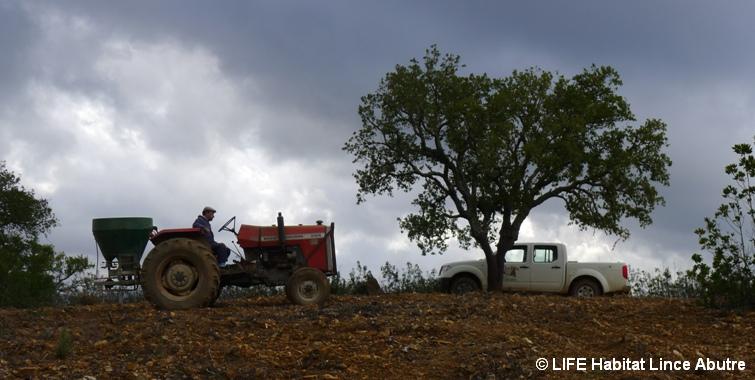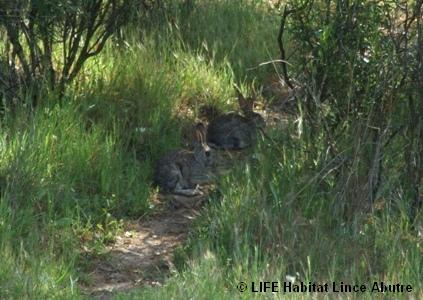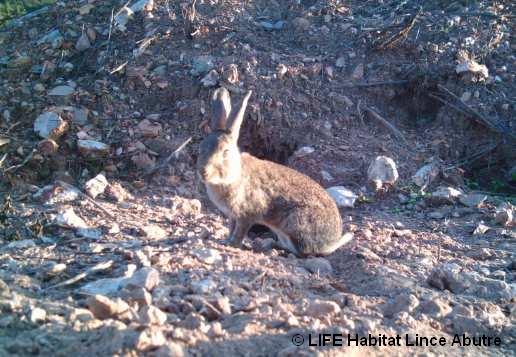Green is the cooperation between Environment and Hunting
The wild rabbit, main prey of the Iberian lynx and important game species in Portugal, has now more 29 pastures in the southeast of Portugal, in a total of 14 hectares of oat and wheat pastures.
This is one of the driest and hottest regions of the country, with a low annual precipitation. Consequently, water and food availability (especially herbaceous plants) significantly drops during Summer, affecting its survival rate. Therefore, and particularly in areas where wild rabbit density is low, the enhancement of food becomes important for the increase of its local populations. So, during Autumn/Winter, hunting managers, landowners and the team of Habitat Lince Abutre, gathered once more to increase the number of pastures available to this lagomorph. Local stakeholders contributed with the seeds (wheat and oat) and the project with fertilizer and pH soil corrector (to increase soil productivity), thus also contributing for local economy, not only by the acquisition of products, but also of services.

The result is already visible… and it’s green!
Let’s hope the weather allows the correct development of the pastures.
With these measures, the suitability of the habitat for wild rabbit and other small game species will be benefited, increasing its populations to a level adequate to the presence of the Iberian lynx, and contributing to the medium term enrichment of the hunting areas (game species abundance).


The wild rabbit and the Mediterranean landscape
The wild rabbit (Oryctolagus cuniculus) is a key prey of the Mediterranean ecosystem, namely in the Iberian Peninsula, for being a landscape modeler (influence on plant communities) and for having an essential role in the Mediterranean ecosystem’s energy flow, by being an important prey of at least 39 species of predators, some of them threatened with extinction, like the Iberian lynx (Lynx pardinus), the Iberian Imperial Eagle (Aquila adalberti), the Black Vulture (Aegypius monachus) or the Bonelli’s Eagle (Hieraaetus fasciatus). Object of a severe decline in the last decades, the wild rabbit is currently classified as Nearly Threatened in Portugal. For being a ‘basis’ prey in the Mediterranean ecosystem, the decline of wild rabbit’s populations has weakened the entire trophic web, threatening profound changes in the native ecosystem.